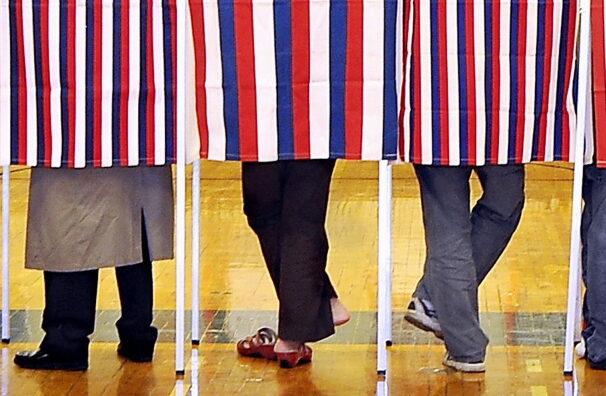AUGUSTA — Members of a legislative committee endorsed a bill Monday that would add Maine to the growing list of states pushing to elect presidents by “popular vote.”
The bill sponsored by Senate President Troy Jackson, D-Allagash, proposes that Maine join an interstate compact that seeks to fundamentally change the Electoral College system that has been in place since the nation’s founding. Each state involved in the compact agrees to award its electoral votes to the candidate who wins the majority or popular vote nationwide, regardless of which candidate wins that state.
Under the Electoral College system, states are given the same number of presidential electors as their respective seats in Congress and whichever candidate captures the majority – at least 270 of the 538 total electors – wins the presidency.
So far, 11 states plus the District of Columbia have signed on to the National Popular Vote Interstate Compact. They represent 171 Electoral College votes. Under the compact, states have agreed not to begin using the popular vote method until its membership represents at least 270 electoral votes.
Maine has four Electoral College votes.
The Legislature’s Veterans and Legal Affairs Committee voted 6-3 on Monday to endorse the popular vote bill. The vote fell along party lines, with Democrats in support and Republicans opposed. While four committee members were absent Monday, their votes would not change the status of the committee’s recommendation if the two Democrats and two Republicans also voted along party lines.
The debate comes roughly two years after President Trump won the Electoral College vote but lost the popular vote to Democrat Hillary Clinton.
Supporters contend that using the popular vote will give all voters – regardless of where they live – an equal voice in selecting a president by replacing the winner-take-all system used by 48 of the 50 states to award Electoral College votes. Maine and Nebraska are the only two states that can split their electors based on the election outcomes in each congressional district.
In 2016, for instance, Maine awarded three electors to Clinton for winning the 1st District and the statewide tally, but awarded one elector to Trump for winning the 2nd District.
Rep. Craig Hickman, D-Winthrop, said Monday that the Founding Fathers settled on the Electoral College system as a compromise between those who wanted Congress to elect the president and those who wanted voters to choose. But the compromise, negotiated during the Constitutional Convention in 1787 in Philadelphia, also gave slavery states a disproportionate voice because slaves were counted as three-fifths of a person when allocating House seats to states.
Hickman said the compromise created “a quasi-representative, anti-democratic body of electors … that are not necessarily representative of any people.”
“I don’t support this bill because of President Trump, I support this bill because we need to find a way to minimize the impact of an anti-democratic institution that was absolutely responsible for exerting the power of slave states over free states for at least two decades in this country. And if I ever have the opportunity to vote to eliminate the impact of such an institution, I will take it. And this is one of those times,” he said.
But Sen. Scott Cyrway, R-Benton, echoed the concerns of opponents that a popular vote would lessen Maine’s influence during presidential elections because candidates will spend even less time campaigning in small, rural states.
“I feel when you change from the Electoral College to the popular vote, we are going to lose our voice,” Cyrway said.
The bill now heads to the Democratic-controlled House and Senate for consideration. Passage requires a majority vote in each body.
Kevin Miller can be contacted at 791-6312 or at:
Twitter: KevinMillerPPH
Copy the Story LinkSend questions/comments to the editors.




Success. Please wait for the page to reload. If the page does not reload within 5 seconds, please refresh the page.
Enter your email and password to access comments.
Hi, to comment on stories you must . This profile is in addition to your subscription and website login.
Already have a commenting profile? .
Invalid username/password.
Please check your email to confirm and complete your registration.
Only subscribers are eligible to post comments. Please subscribe or login first for digital access. Here’s why.
Use the form below to reset your password. When you've submitted your account email, we will send an email with a reset code.